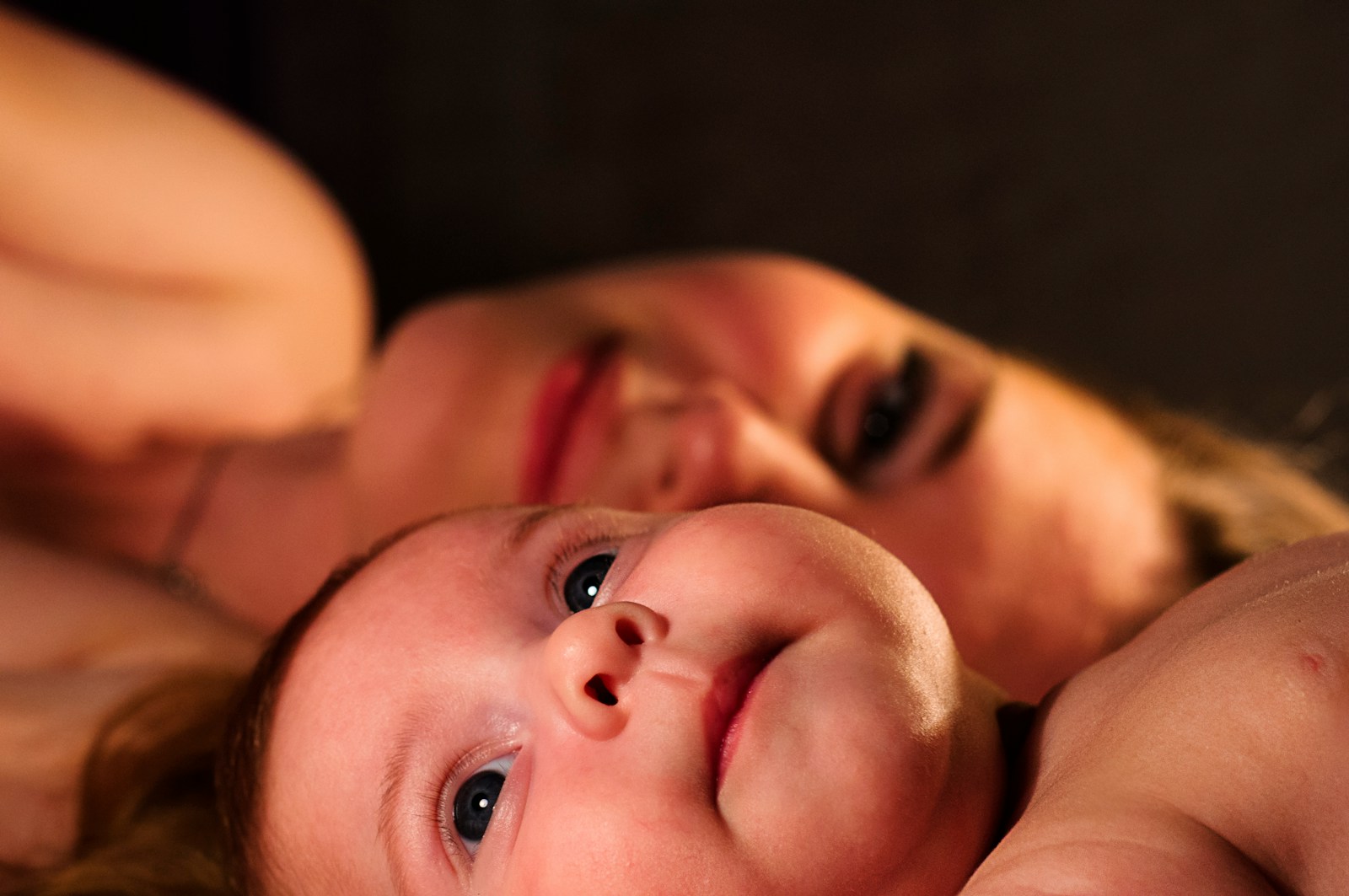Depression or baby blues after delivery of the child is not very uncommon amongst the new mothers. Feeling sad, worthless or frequent spans of crying after delivery are often characterized as baby blues which is directly related with the changed hormonal levels in the body of the mother after the delivery. However, the symptoms of depression can vary drastically from one person to another, and while for some it can be categorized only as baby blues, for some it can take the form of serious depression and can even take a turn towards postpartum psychosis with more severe symptoms. The good thing is that, any of these types of depressions can be treated with medicines and counseling. Hence the most important thing is to diagnose the problem at an early stage and to take the right measures immediately instead of suffering and letting the depression reach a higher stage.
What causes depression after delivery?
During pregnancy the levels of the two female reproductive hormones estrogen and progesterone are very high in the body of the expecting mother. After the delivery of the child, this hormone levels sharply come down and they become normal within 3 days of the child birth. This rapid drop in the hormonal levels affects the hormonal balance of the body triggering the depression. However, how exactly the drop of these two female hormones works to trigger the depression is not clearly known yet. Postpartum depression in any of its three forms, baby blues, depression or psychosis can develop within 4 weeks of the child birth.
Most of the new mothers experience baby blues in one form or another, while one in ten women might be affected by the depression. On the other hand, the number of women suffering from postpartum psychosis is only around one in one thousand. Postpartum psychosis is extremely serious and involves high risk of suicide or infanticide. It develops suddenly, within 48 hours or 2 weeks of the delivery.
The symptoms of postpartum depression
A new mother might experience one or more of the following symptoms in a mild or severe intensity depending on many other factors. The common symptoms of postpartum depression include,
- Inability to sleep
- Lack of appetite
- Withdrawing from the baby and from your partner
- Severe mood swings
- Continuous sadness
- Irritability or restlessness
- Frequent episodes of crying
- Extreme anxiety
- Fear
- Feeling of guilt and worthlessness
- Thoughts of suicide
- Hopelessness
- Excess fatigue
If these symptoms persist for more than 1-2 days, it should not be discarded as normal baby blues and immediate help should be provided.
The risk factors of postpartum depression
Every new mother does not develop postpartum depression and there are some risk factors that usually increase the chance of developing the condition after delivery of the child. Some of the most common risk factors of postpartum depression include,
- History of depression before or during pregnancy
- History of depression in family
- Age during delivery, younger women are more prone to develop postpartum depression or even postpartum psychosis compared to the more aged mothers
- Your idea about the pregnancy and how it is being accepted in your family
- Marital discord or problems in the family
- Limited social and family support
Even if some or all of the triggers mentioned above are present for you, it does not necessarily mean that you will develop postpartum depression but these triggers actually increase your risk of developing the condition. So, if any of the above triggers are positive for you, make it a point to inform your doctor beforehand. So that she can take the necessary measures as soon as your baby blues seem to advance for postpartum depression.
Treating postpartum depression
If you have developed postpartum depression within 1-3 days of delivery, while you are still at the hospital, your doctor will prescribe you certain medications for quick relief. However, every antidepressant might not be suitable for the mothers even after delivery, particularly if she is breastfeeding the child. There are some particular types of medicines that can be used effectively in this case and it is only your doctor who can prescribe you the right medication to cure the condition.
However, in many cases, the postpartum depression becomes more prominent only after 2-3 days of delivery, when you have left the hospital and have got back to your normal life. To treat this depression you can take the following measures, but if things seem to not to be resolved quickly, it is best to call up your doctor and to ask for help. Here are some of the most effective ways that you can try out to treat depression after pregnancy,
Sleep adequately
After the delivery the body of the mother is still in the recovery phase and it is not only your child who needs to sleep adequately during this time. Proper sleep and rest is vital for recovery of the mother as well and it can also be the best way to treat symptoms of depression like irritability, mood swings, sadness and others. So, no matter the situation in your home, make it a point to take adequate rest after delivery as it is the best natural system of the body to calm the nerves and to cure any mental ailments.
Do exercises
Every exercise might not be ideal for a mother who has just delivered her baby, but you can always do light freehand exercises and things like slow running and walking without exhausting yourself too much. Exercise releases serotonin in the brain. Serotonin is a great mood booster and the natural mood healing agent of the body. So, by exercising daily, you can easily treat the depression after delivery as it will increase the natural feel good hormone in your body.
Focus on what you eat
What you eat has a direct impact on how you feel, so taking care of your diet is highly important during this span. Including more green vegetables, fresh fruits and whole grains in your diet can be effective to give your mood a natural lift. These foods are loaded with vitamins and minerals that can improve the synthesis of serotonin in the brain. Omega 3 fatty acids have also been found to have a mood lifting effect and hence including more fatty fishes, nuts and seeds, which are the best known natural sources of Omega 3s, in your daily diet is a very good idea.
Completely avoid caffeine and alcohol during this span as these are known for giving a spike to your mood and then pushing you more towards depression. Also make sure that your daily diet has sufficient amount of protein in it as a low-protein diet has been related with depression.
Give time to your relationships
With a new member in your family, you have embarked on a new path of life and it is a time when you should nurture your relationship with your partner even more instead of neglecting. Having someone by your side to share your responsibilities and to understand your problems can be most helpful to recover from this difficult phase. Giving time to your spouse, family and friends is one of the best ways to treat the post-delivery depression.
Pamper yourself
With a new baby and your own body still healing it might not be possible to go out on a shopping spree to pamper yourself and to get back in mood but you can always pamper yourself even at home. Listening to your favorite music, taking a long comfortable bubble bath, doing something that you really enjoy to do, like reading books or taking care of the plants can be a good idea to boost your mood.
Share your problems
If you are feeling depressed after delivery, it is most important to share your problem with someone close to you. You can talk about it with your partner, a friend or with your mother or sister whoever is close to you. Sharing your problems with someone close is sure to relieve you to a great extent and it will also make it possible to get immediate help if needed. So instead of suffering alone, share yourself and you will feel much better.
When a new mother should seek medical help for postpartum depression
This is a very important point because often new mothers expect the depression to go away with time but it keeps on persisting. Unless you exactly know when you should seek medical assistance for it, lingering too long to let it cure on its own can only increase the problem.
If you find that your symptoms of depression are persisting even after 2 weeks, you should visit your doctor without wasting time. In case, the new mother is not able to perform her normal course of life, or she is not able to deal with everyday life situations, it is important that medical assistance is provided at the earliest. Feeling extremely scared, panicked, anxious or recurrent thoughts of suicide or harming the baby are the other symptoms when immediate medical assistance is important.
Treatments available for postpartum depression
Usually three types of treatments are suggested by the doctors for treating postpartum depression, depending on the particular scale of the depression. The patient might be suggested for psychotherapy, given medications or guided for hormonal therapy. The right type of therapy in a particular case should be decided by the doctor and she might also suggest more than one type of these therapies at the same time or one after another in order to get quick results.





